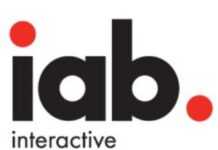
In a letter to The FCC, 49 State Broadcasters Associations have come out in opposition of a potential rule change, proposed by GeoBoradcast Solutions, that would allow targeted content using FM boosters.
The letter says, “GBS’s approach would only undermine, rather than serve, listeners and local broadcasters, raising serious concerns about this new technology’s effect on local radio’s important public safety function and ability to provide the free, local news, information, and entertainment on which Americans rely.”
Even though the rule change would only allow for 5 minutes of targeted content per hour, The Association’s write that the FCC should have concerns that ZoneCasting will interfere with the broad distribution of timely news about emergencies. “For example, it could be dangerous for a listener to suddenly lose access to an emergency news update if they should happen to drive outside the zone where such information is broadcast. Similarly, drivers stuck in slow traffic caused by an emergency will take longer to traverse the area in which ZoneCasting disrupts radio service as the radio signal transfers from one booster to another. Listeners in this situation could lose clear radio service for an extended period of time, and at the worst possible time.”
GeoBroadcast Solutions has told Radio Ink that the transitions from one booster to another in the tests are smooth and without disruption.
To date, according to the state association letter, “GBS has conducted only two field tests of ZoneCasting, and neither test demonstrated that ZoneCasting can be deployed without negatively affecting radio service.”
We spoke to Steve Roberts, the President of Roberts Broadcasting, which owns WRBJ-FM in Jackson. His station is one of the test stations and Roberts loves the service.
The NAB has also been working hard trying to get the FCC to deny the rule change.
The State Association’s also say that ZoneCasting could have a devastating economic impact on the radio industry. “Specifically, if even one station in a market chooses to use ZoneCasting to sell ads that reach only segments of the market, other stations will be forced to respond either by: (1) reducing rates for ads that reach the entire market to match the ZoneCasting station’s cheaper rates for geotargeted ads; or (2) paying GBS’s exclusive licensing fees (and other costs) for the unwanted privilege to use its system.”
The letter goes on to state: The associations respectfully ask the Commission to dismiss GBS’s proposal because ZoneCasting is likely to impair listener access to radio and threaten broadcasters’ ability to serve the public interest in free, over-the-air radio service.”
Radio is one of the last remaining media industries that does not target ads or content to its audience.






Personally I think Zonecasting is a bad idea for the listener, and yet for those who do adopt it (if it’s approved), they’ll be the ones to either enhance-or disrupt their stations. Seamless from zone to zone? Hard to believe that one. No interference to other stations? Got proof? Then have at it. Just remember those other “saviors” like AM Stereo, FM Quad, HD (for both AM and FM) have been anything but a rousing success and the HD technology DOES cause interference in adjacent channels. Geo-casting is an expense that these stations may want to take on. It would seem down the road we’ll know for sure if there’s an ROI or another white elephant of technology.
I’m curious, what is the one state that its broadcasters association didn’t join in the filing, and why?